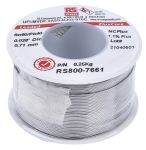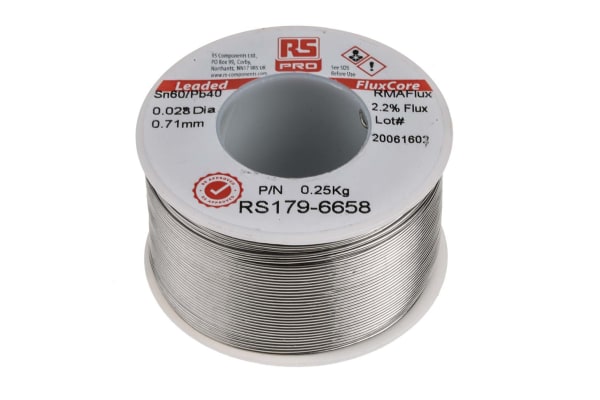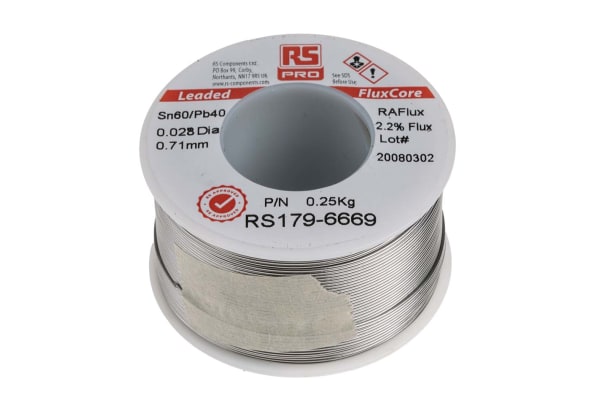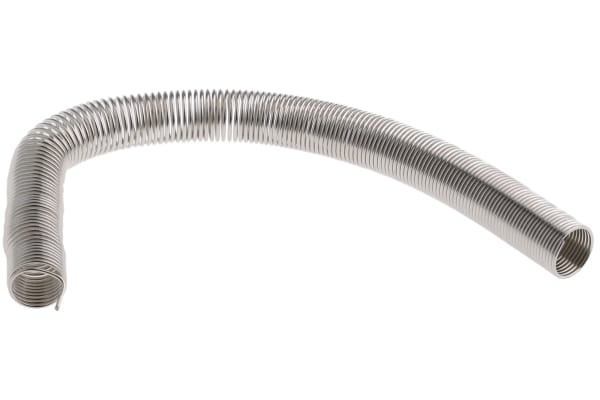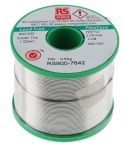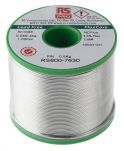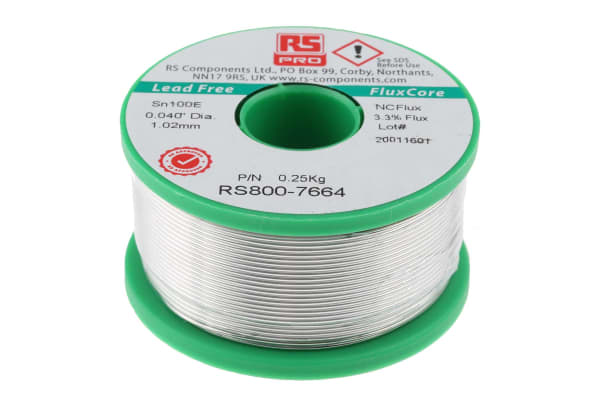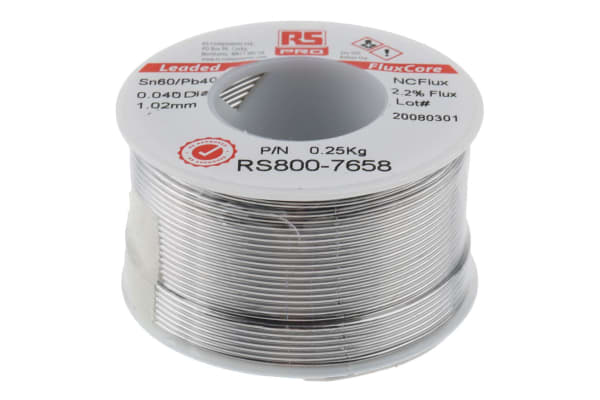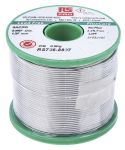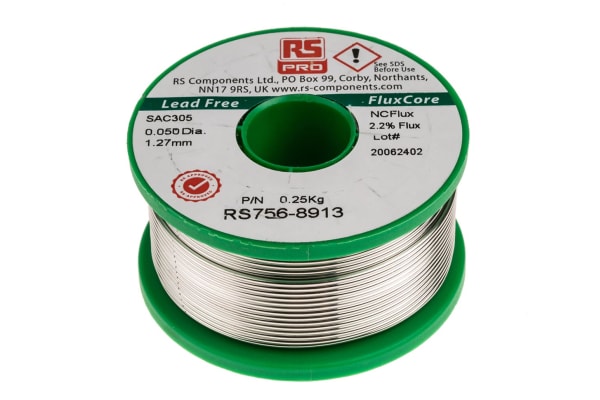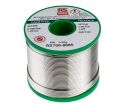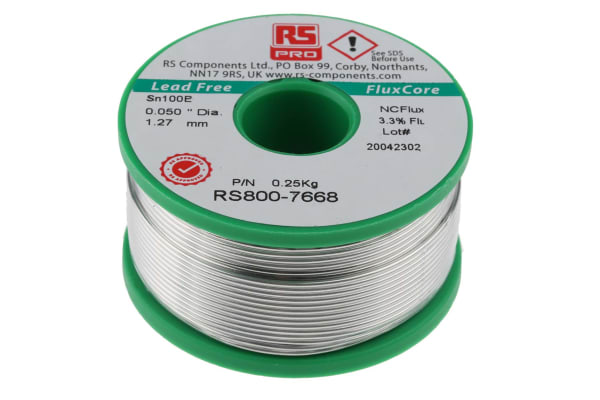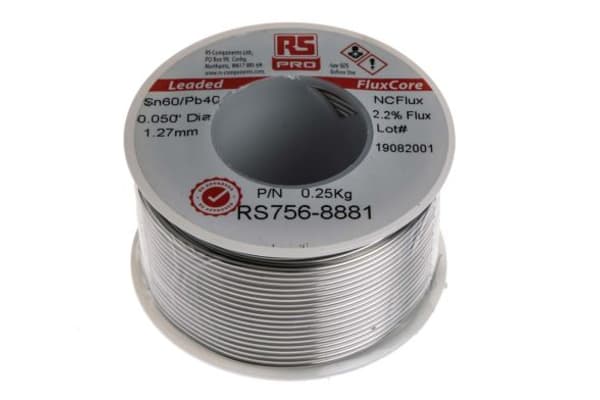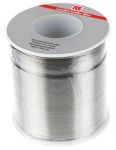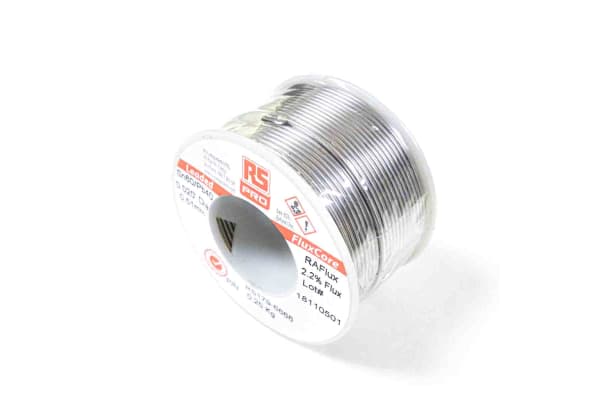Solders
Solder, or solder wire, is a fusible metal alloy with a low temperature melting point used to permanently join two metals that have a higher melting point. Soldering is a process commonly used in the electronics industry for PCBs and electronics components, jewellery manufacturing and pipework in plumbing, with the majority of soldering carried out through the use of a soldering iron.Our range of solder wire contains products from industry leaders like Felder Lottechnik, MBO, Multicore, Weller and RS PRO, with a variety of wire diameters (ranging from 0.23mm to 7mm) and lead content (0% to 70%).What is solder made of?The alloys used in solder vary depending on the manufacturer and the intended application, as different applications require different materials.Soft solder is commercially available at varying concentrations of tin, ranging from 5% to 70%. Higher percentages of tin provide greater tensile strength, with a 60/40 balance being a popular composition.Lead-free solder is also available, created due to the call to remove or reduce hazardous materials in consumer electronics, which often has a lower melting point than lead-based alloys. Lead-free solder wire may contain copper, zinc, tin, silver, bismuth, antimony and/or traces of other materials depending on its intended use.What is flux?In order to prevent the oxidation of the metal alloy and ensure a strong electrical connection and high mechanical strength, soldering wire contains a flux, which can be made of different materials. A flux is a chemical agent that will help to reduce metal oxides (return oxidised metals to their original state) and seal out air from the join, preventing any further oxidation.There are two main types of flux: acid/active, which contains strong acids and is used in plumbing and metal mending, and rosin/passive, which is used in electronics.What forms of solder are there?The majority of solder comes in wire form, with a range of wire diameters available to suit various applications and joints. Solder granules are ideal for soldering machines and tinning crucibles, but these small pellets of solder popular for jewellery making too. Paste solder is ideal for use in printed circuit boards (PCBs) and connecting surface mount electronic components. It is a sticky paste which is applied to a board by printing or painting.
-
RS PRO Wire, 0.71mm Lead solder, 183°C Melting Point
VND968,944.13 -
RS PRO Wire, 0.71mm Lead solder, 183°C Melting Point
VND1,040,291.56 -
RS PRO Wire, 0.7mm Lead solder, 183°C Melting Point
VND1,096,155.97 -
RS PRO Wire, 0.7mm Lead solder, 183°C Melting Point
VND2,017,395.66 -
RS PRO Wire, 0.7mm Lead solder, 183°C Melting Point
VND913,079.72 -
RS PRO Wire, 0.81mm Lead Free Solder, 228°C Melting Point
VND2,604,495.04 -
RS PRO Wire, 0.81mm Lead Free Solder, 228°C Melting Point
VND1,662,123.12 -
RS PRO Wire, 0.8mm Lead Free Solder, 227°C Melting Point
VND188,516.23 -
RS PRO Wire, 1.01mm Lead Free Solder, 217°C Melting Point
VND3,933,942.46 -
RS PRO Wire, 1.01mm Lead Free Solder, 217°C Melting Point
VND2,324,545.30 -
RS PRO Wire, 1.01mm Lead Free Solder, 228°C Melting Point
VND2,719,780.77 -
RS PRO Wire, 1.01mm Lead Free Solder, 228°C Melting Point
VND1,400,167.16 -
RS PRO Wire, 1.01mm Lead solder, 183°C Melting Point
VND1,959,857.41 -
RS PRO Wire, 1.01mm Lead solder, 183°C Melting Point
VND904,082.83 -
RS PRO Wire, 1.27mm Lead Free Solder, 217°C Melting Point
VND3,304,369.39 -
RS PRO Wire, 1.27mm Lead Free Solder, 217°C Melting Point
VND2,495,067.75 -
RS PRO Wire, 1.27mm Lead Free Solder, 228°C Melting Point
VND2,767,903.67 -
RS PRO Wire, 1.27mm Lead Free Solder, 228°C Melting Point
VND1,406,653.29 -
RS PRO Wire, 1.27mm Lead solder, 183°C Melting Point
VND982,334.85 -
RS PRO Wire, 1.27mm Lead solder, 183°C Melting Point
VND2,083,512.34 -
RS PRO Wire, 1.27mm Lead solder, 183°C Melting Point
VND1,020,623.94 -
RS PRO Wire, 1.2mm Lead solder, 183°C Melting Point
VND641,708.41 -
RS PRO Wire, 1.2mm Lead solder, 183°C Melting Point
VND1,879,303.86 -
RS PRO Wire, 1.2mm Lead solder, 183°C Melting Point
VND1,017,067.03




